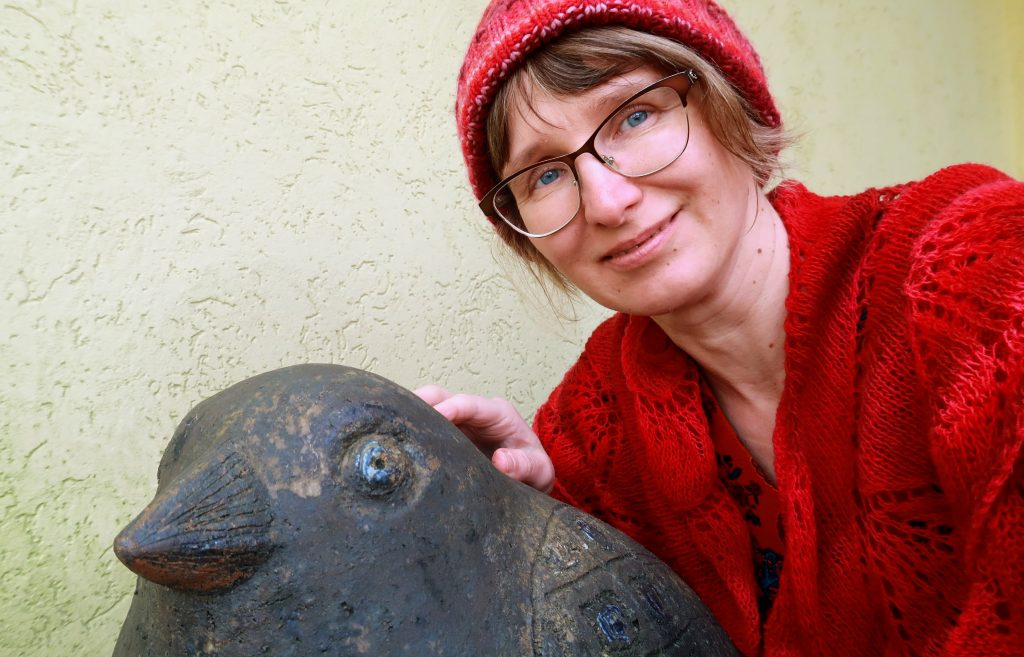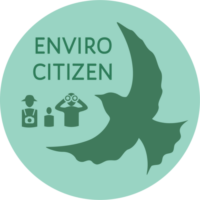The Horizon 2020 environmental humanities programme “EnviroCitizen” begins

With the help of birds, we are making our contribution to environmental history. The Under and Tuglas Literature Centre of the Estonian Academy of Sciences is a partner in a European Union research project directed by the University of Stavanger, which examines how one can become an environmentally aware citizen.
What does local bird watching tell us about climate change and climate and environmental values? The project where such a research question was raised received a three year support in the EU Horizon 2020 programme to further study the so-called green citizen science. Seven partners from European research institutions are included in the project that examines how activities related to bird watching and counting help to increase environmental awareness and instill an environmentally sustainable way of thinking.
According to project leader Finn Arne Jørgensen, the annual pan-European backyard bird counting is one of those events that encourages people to record all the bird species they see in their garden on one weekend a year. This type of research, called citizen science, has in its way become a standard model for the implementation of research projects. In them ordinary people help scientists in the data collection process.
Importance of environmental humanities is on the rise

Finn Arne Jørgensen is a professor of environmental history at the University of Stavanger and, together with Professor Dolly Jørgensen from the same university, leads a working group of leading European scientists in environmental humanities called The Greenhouse. Until now, climate and environmental science has been the preserve of the natural sciences, but it is becoming increasingly clear that research in the humanities is helping to contribute to a better understanding of these issues.
As it seeks solutions to problems related to the environment and climate, environmental humanities combines theories and methods from various research areas and disciplines. It is an up-and-coming research field. In this project, researchers from Sweden, the Netherlands, Romania, Spain, Cyprus and Estonia are partners of the University of Stavanger.
The project runs from 1 April 2020 to the end of 2023, cooperating also with the ornithological societies of the partner countries. Under the leadership of senior researcher Ulrike Plath, the Under and Tuglas Literature Centre of the Estonian Academy of Sciences has already been involved in the study of environmental humanities for several years. The centre is represented in the project by Elle-Mari Talivee, whose research topics have brought together literature, the environment and ornithology; who is also a board member of the Estonian Ornithological Society/Birdlife Estonia.
„The project has a great name in English“, finds Elle-Mari Talivee. „I really wish I could translate it into Estonian as ’rohekodanik’ (green citizen), but it would probably sound like an alien from outer space. On the other hand, a way of life that takes into account the environment is, after all, a topic for people who look to the future, and perhaps this is something that these words convey. Had the coronavirus not closed down the world for a while, we would have discussed all these issues in Stavanger at the beginning of April and also visited the birdwatching towers there; now we’ve had to limit ourselves to online discussions. The backdrop to these conversations has been the Tuglas Garden, which opens from a window at my currently rather a lonely desk, and about which I keep my garden bird diary. Indeed, this is what citizen science is about.”
Impact on environmental awareness
While many projects using citizen-assisted research focus on the breadth and quality of the scientific results obtained, this project aims to explore the impact citizen science has on people’s environmental awareness.
The project team is developing a multilingual educational programme to be implemented in schools and at public events of the partner countries in order to popularise participation in the already existing bird counting activities in a way that also facilitates engagement as an environmentally aware member of society. The programme is based on environmental research from the perspective of humanities and social sciences.
„Birds are found all over Europe. Everyone has some connection with them. In this project, we use the birds of our locality to talk about environmental changes and values,“ says project manager Finn Arne Jørgensen.
Read the projectʼs blog here:
Connecting with and through birds


